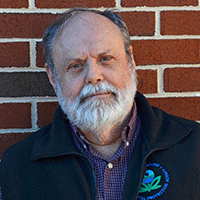New research on global surface ozone levels highlights regions, populations most affected by air pollution
February 7, 2018
Joseph Pinto, PhD, adjunct professor of environmental sciences and engineering at the UNC Gillings School of Global Public Health, is a co-author of an international Tropospheric Ozone Assessment Report that presents analyses of ozone levels around the world. The research was led by the universities of Leicester and Edinburg and 12 other institutions.
The assessment report aims to improve scientific understanding of ozone’s global distribution and trends. Published Feb. 4 in the scientific journal Elementa: Science of the Anthropocene, the results provide the most ambitious ground-level ozone assessment to date, using data from more than 4,800 monitoring stations across the globe.
As part of the study, ozone levels potentially detrimental to human health have been assessed where data are available, both in urban and non-urban areas worldwide. Considerable variation exists within regions and hot-spot locations, and the highest ozone levels have been identified.
Changes in ozone levels from trend analysis show that ozone has decreased in much of Europe and North America over the last 15 years. However, the research shows that ozone is rising in some parts of East Asia over the same period, reflecting increasing development and pollution emissions.
Previously, analyses of ozone trends at individual or smaller groups of sites often left researchers unable to draw robust conclusions about regional trends in areas such as Europe and North America. The large number of sites now included in this more comprehensive dataset have allowed for more robust conclusions that ozone levels in Europe and North America are decreasing somewhat.
Maps of present-day ozone levels and changes between 2000 and 2014 throughout North America, Europe and East Asia are available here and in the published article.
“This effort represents the first systematic analysis of worldwide data of the global distribution of ground level ozone, an air pollutant that is a major contributor to worldwide morbidity and mortality,” Pinto said. “We found that people living in many areas, including the United States, are still subjected to repeated exposures to ozone levels that are harmful to human health.”
In addition to the University of North Carolina at Chapel Hill, study co-authors are from the Institute for Advanced Sustainability Studies (IASS) and Forschungszentrum Jülich in Germany; University of Colorado, University of Maryland, and A.S.L. and Associates, all in the U.S.; the Stockholm Environment institute, in the UK; INERIS, in France; the Chinese Academy of Meteorological Sciences and Chinese Academy of Science, in China; NILU, in Norway; Chalmers University, in Sweden; and the University of Witwatersrand, in South Africa.
The chair of the steering committee for the assessment report is Owen Cooper, PhD, senior research scientist with the National Oceanic and Atmospheric Administration’s Earth System Research Laboratory in Boulder, Colo. Cooper earned a bachelor’s degree in environmental sciences and engineering at the Gillings School in 1994.
Gillings School of Global Public Health contact: David Pesci, director of communications, (919) 962-2600 or dpesci@unc.edu

